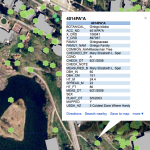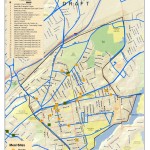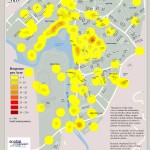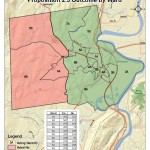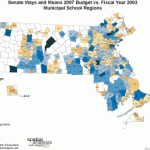The Spatial Analysis Lab is working with the Smith College Botanic Garden to develop an open and robust data model based on the fine work by the Alliance for Public Gardens GIS (APGG). This effort began as a tiny seed almost 10 years ago, but languished without light and nourishment. Now, conditions seem ripe to […]
Category Archives: Featured
Featured stories that represent the best of the Spatial Analysis Lab
Food Bank Mapping
The Food Bank of Western Massachusetts sought mapping and analysis support from the Spatial Analysis Lab during the summer of 2010. The project is currently on hold, but you can view some of the initial map products below. Sarah Motti ’10 provided assistance on the project during her summer employment in the SAL. In many […]
Bike Trail Mapping
The Spatial Analysis Lab (SAL) recently finished the 2011 version of the “Easthampton ~ Northampton Trail & Bicycle Map” for the Friends of Northampton (MA) Trails and Greenways (FNTG) organization. The 2011 series marks the third iteration of the map series which started back in 2006. The Bike Map series represents countless hours of effort […]
Healthy Communities
The Spatial Analysis Lab provided mapping and spatial analysis to Cooley Dickinson Hospital (Northampton, MA) as part of their 2011 Community Health Assessment report.
Spatial Perspectives: A Podcast Series
NITLE begins a new podcast series entitled Spatial Perspectives. The first installment begins with Sean Connin, Program Officer for Science and Technology at NITLE, asking Jon Caris, GIS Specialist at Smith, a few questions on cross-curricular uses of GIS.
Illustrating the Invisible
The purpose of this study was to examine the relationship between Smith College students and the Smith College campus through a spatial medium
Community Divided?
Mapping the comfortable margin of the Northampton Proposition 2 1/2 override tells a different story…
Geography Lesson for Legislators
Illustrating those same data on a map, which ironically, had not been done before, demonstrated the inequities of the proposals and actually helped generate better funding for the disadvantaged districts.
